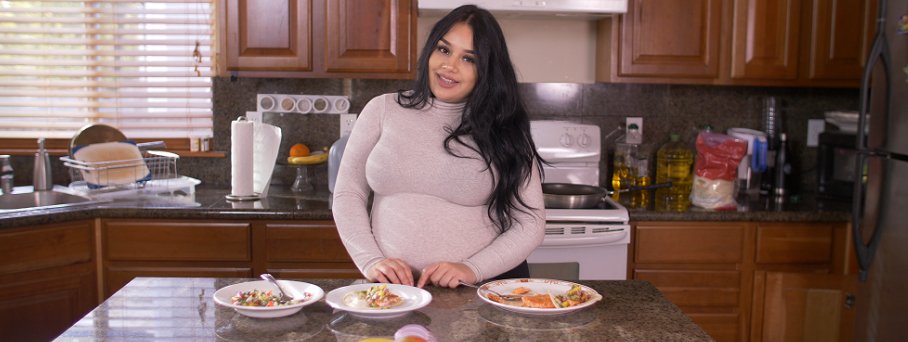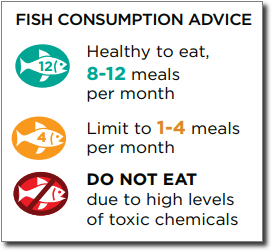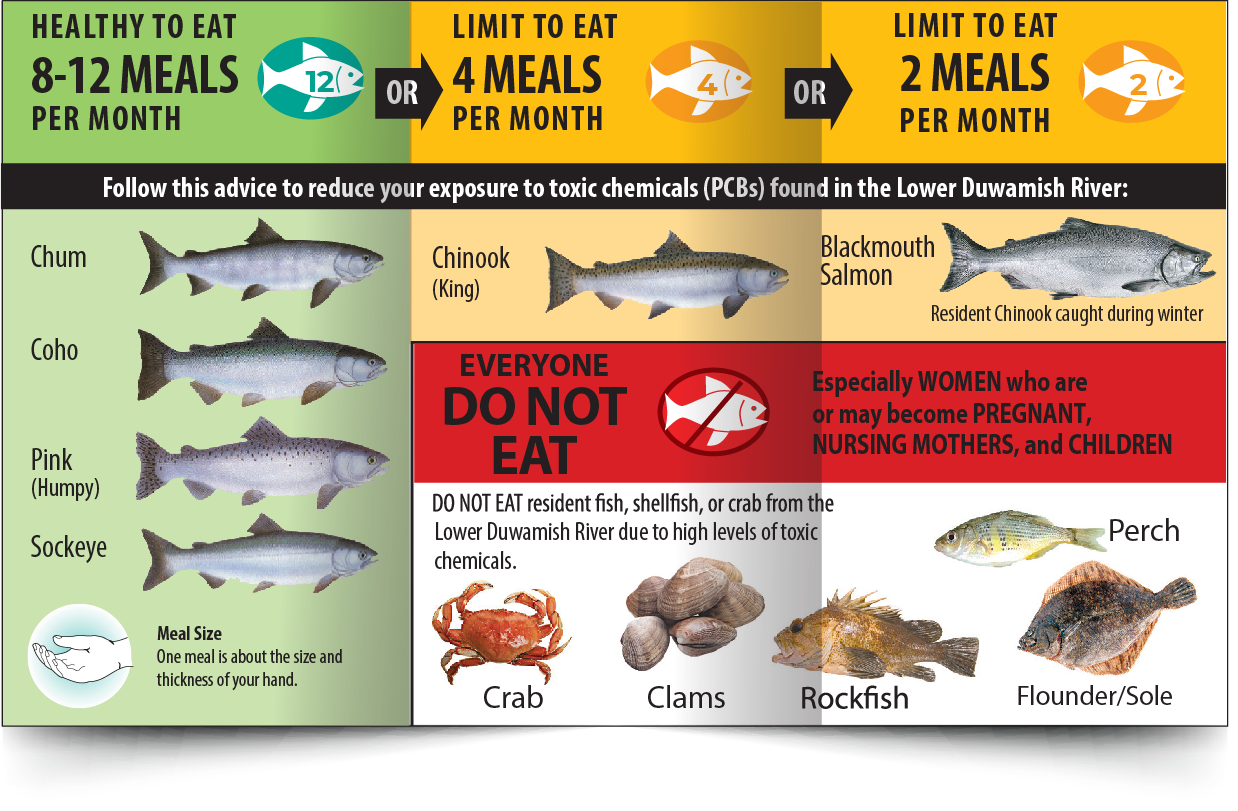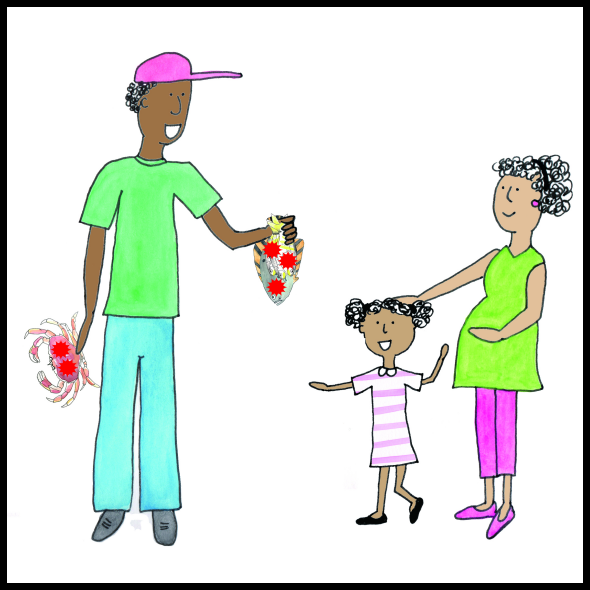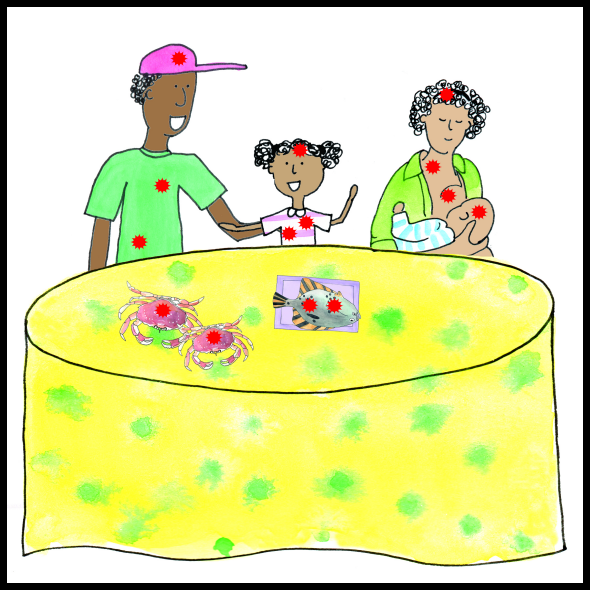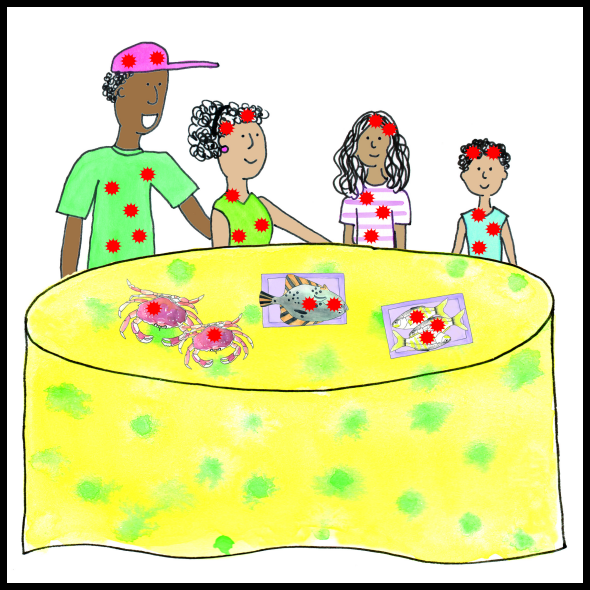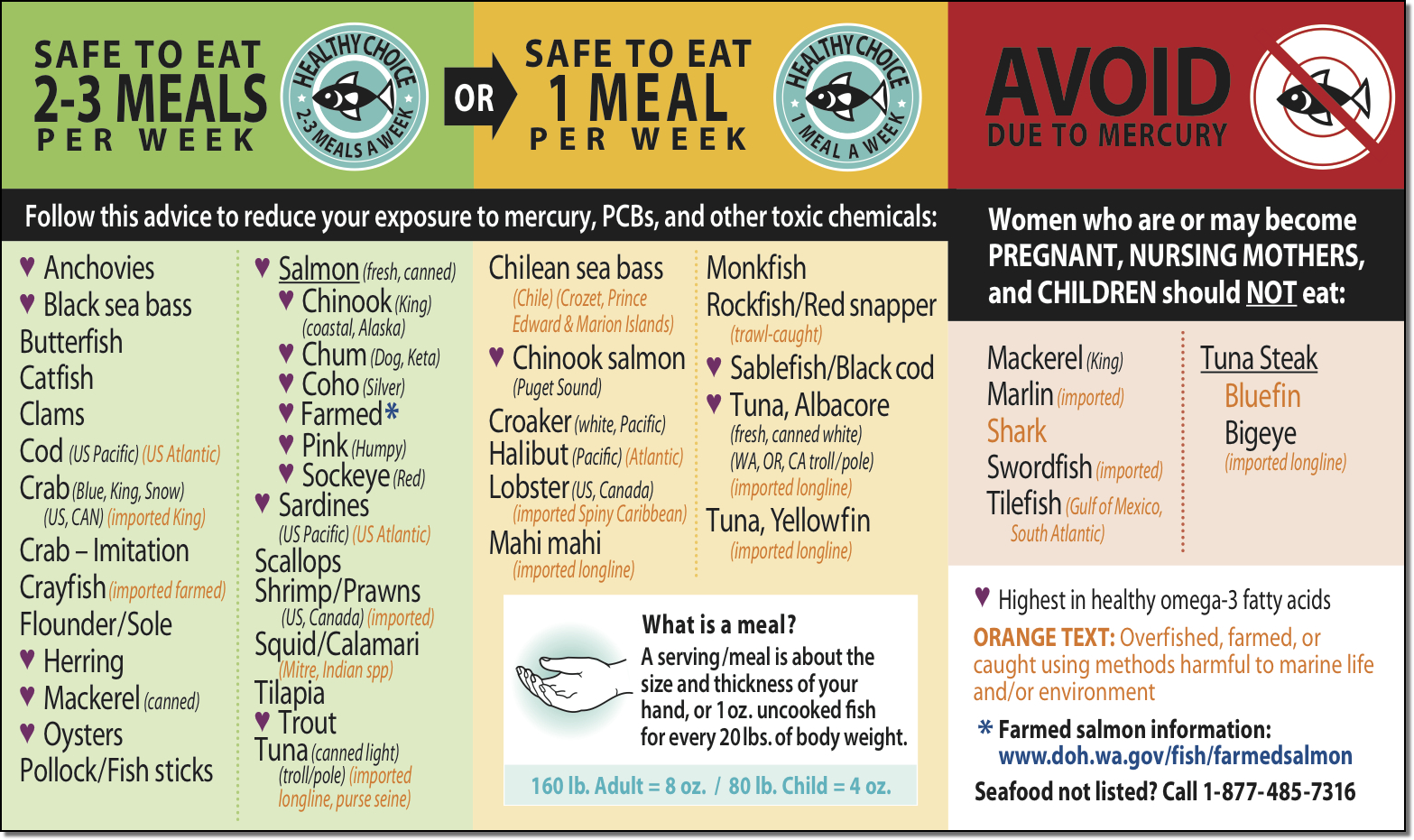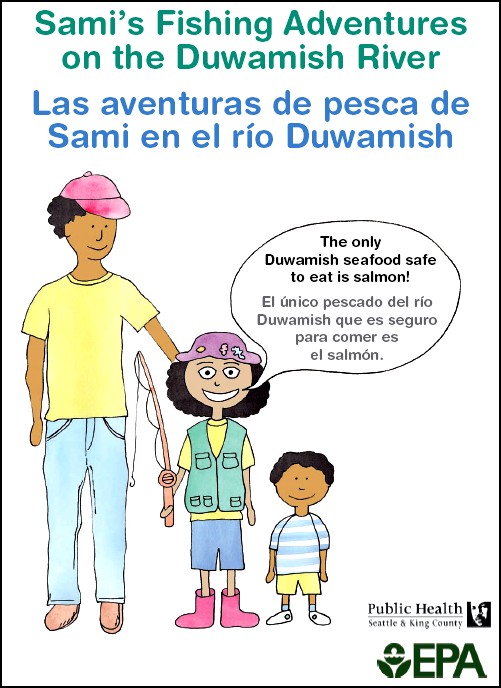Health advice for moms and children
What you need to know about toxic chemicals, seafood and your health
We encourage you to make fish a healthy part of your diet by eating fish and shellfish low in toxic chemicals.
In the Duwamish River, the seafood that spend their entire lives in the river (perch, sole, flounder, crab, mussels and clams) are unsafe to eat because of toxic chemicals (such as PCBs). Toxic chemicals can harm unborn babies, infants and young children the most – impacting their memory, attention, motor skills and language development.
The only Duwamish seafood safe to eat is salmon
because they spend a short time in the river.
If you are pregnant or nursing, a young child (under 6 years old) or plan to have kids in the future, we recommend:
- Eat only salmon from the Duwamish River.
Do not eat the resident seafood (such as perch, flounder, sole, crab, mussels and clams) that spend their entire lives in the Duwamish River.
- Take an extra step and make fish that’s already low in PCBs (such as salmon) even healthier by eating just the skinless fillet of the fish. You can also grill, bake, broil or steam the fish so fat drips off.
- Eat only the meat part of the crab caught in urban waters of King County. Do not eat the crab guts (also called green glands) where PCBs can build up in.
- Choose seafood options at the supermarket. Take this card with you next time you are buying seafood at your local market.
MORE INFORMATION
The local seafood consumption advisories are particularly important for women who are pregnant or nursing, children under the age of six and people who plan to have children.
Some fishing areas in Washington State are polluted with toxic chemicals (like PCBs or mercury) that build up in the seafood – making it unsafe to eat. Washington Department of Health issues these advisories as recommendations on which fish or shellfish is safe to eat, and which ones to limit or avoid all together.
The special advisory for the Duwamish River warns people to not eat the resident fish, shellfish and crab ("resident seafood") because of high levels of PCBs in the resident seafood. This advice is especially important for women who are or may become pregnant, nursing moms, and children.
Download and print on the front and back of paper, a foldable Duwamish Waterway Consumption Advisory card.
Eating fish, crab or shellfish that have toxic chemicals (such as PCBs) will not make you sick right away (like give you a stomach ache). It may take months or years of eating polluted fish to build up enough chemicals in your body to be harmful to your health.
The health effects may be very hard to notice, such as problems with development of the nervous system that lead to lower IQ, memory and attention, problems with motor skills, difficulty to become pregnant (e.g., low sperm count, decreased conception rates, miscarriages), and struggling to fight off illness. More seriously, long term exposure to PCBs has also been associated with certain types of cancer.
Most importantly, PCBs can harm the development of an unborn baby, infant or young children (under 6 years old), such as impacting their learning, attention and memory.
Toxic chemicals like PCBs build up mainly in fat cells so they can pass from mother to child through breast milk. Other toxic chemicals or metals (such as mercury) build up in the muscle or the meat of fish and shellfish.
Unborn babies, infants and young children (under 6 years old) can be harmed the most by high levels of toxic chemicals. Why? Because their brains and bodies are still growing.
When a baby or child is exposed to high levels of PCBs, it increases their chances for health issues later on. These health effects may be very hard to notice, such as problems with memory, attention, motor skills and language development.
Nursing moms: Please continue to breast feed if you can, even if you have eaten fish with toxic chemicals in the past. The nutritional benefits from breast milk are worth more than the risks of some harmful chemicals.
Fish and shellfish are delicious and healthy to eat. Fish is a good source of lean protein and are low in saturated fat. Eating fish can be good for your heart and brain.
Eating fish is especially good for pregnant women and nursing moms. Fish is a great source of nutrients and healthy fats (omega-3 fatty acids) that are beneficial for your growing baby.
We also encourage young children (under 6 years old) to eat fish and shellfish as part of a nutritious diet. They are important for brain development.
Make fish a part of your healthy diet by eating a variety fish and shellfish, particularly ones that are low in toxic chemicals such as salmon and and other fish caught in Puget Sound (see guide below) or found in the supermarket.
Download and print a coloring book with puzzles:
"Sami's Fishing Adventures on the Duwamish River"
- English and Khmer
ដំណើរផ្សងព្រេងនេសាទត្រីរបស់សាមីក្នុងស្ទឹងឌូវ៉មមីស្ស
- English and Spanish
Las aventuras de pesca de Sami en el río Duwamish
- English and Vietnamese
Hành trình câu cá của Sami ở sông Duwamish

 Translate
Translate
